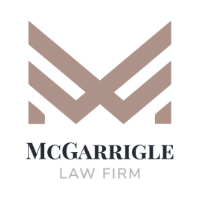Paoli White Collar Crime Lawyer, Pennsylvania
Sponsored Law Firm
-
 x
x

Click For More Info:
-
The Law Offices of Richard L. Cooper, P.A.
848 Brickell Avenue Suite 800 Miami, FL 33131» view mapDWI/DUI, Drug Trafficking, Felony Nationally Ranked Top 40 Under 40
With Richard L. Cooper you can expect a trusted confidant who will work diligently to fully understand your case and determine a road map to help you regain control of your life.
800-756-2781
Daniel McGarrigle
✓ VERIFIEDMilitary & Veterans Appeals, White Collar Crime, DUI-DWI, Criminal
Attorney Daniel McGarrigle is an aggressive advocate and experienced litigator; he has tried hundreds of cases and handled all types of criminal matte... (more)
FREE CONSULTATION
CONTACTAdrian R. King
Gaming & Alcohol, Government, White Collar Crime, Administrative Law
Status: Suspended Licensed: 57 Years
Alyssa Kusturiss Poole
Wills & Probate, White Collar Crime, Criminal, Corporate, Personal Injury
Status: In Good Standing Licensed: 21 Years
Andrew P Reeve
Mass Torts, Litigation, Lawsuit & Dispute, White Collar Crime
Status: In Good Standing Licensed: 14 Years
Arik T. Benari
DUI-DWI, White Collar Crime, Misdemeanor, Felony
Status: In Good Standing Licensed: 24 Years
FREE CONSULTATION
CONTACTArthur T. Donato
White Collar Crime, Criminal, Civil Rights, Administrative Law, Business
Status: In Good Standing Licensed: 44 Years
Arthur T. Donato
Civil Rights, White Collar Crime, Administrative Law, Criminal, Business
Status: In Good Standing
Ashly Ryan McGarity
Visa, DUI-DWI, Domestic Violence & Neglect, Firearms, White Collar Crime
Status: In Good Standing

 Richard L. Cooper Miami, FL
Richard L. Cooper Miami, FL AboutMiami Attorney at Law
AboutMiami Attorney at Law ServicesCriminal Defense
ServicesCriminal Defense

